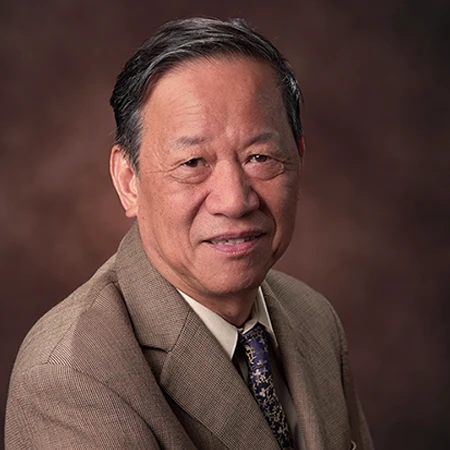師資介紹

不要效法這個世界,只要心意更新而變化,叫你們察驗何為神的善良、純全、可喜悅的旨意。(羅馬書 12:2)
謝文郁博士
Wenyu Xie, Ph.D.
北美中華福音神學院副教授、專任老師
主授:
教会历史,奥古斯丁神学,新教神学,中国近代教会史,基督教与后现代思潮等
學術研究:
專長領域:歷史神學、新約研究、儒家研究
研究方向/興趣:基督教神學思想史,儒家思想研究,當代認識論問題
個人簡介:
出生於中國廣東梅縣。長大後曾立志於追求真理,涉獵於道家、佛教、古希臘哲學,在真理追求上累累受挫。1993年,為追求真理而接受洗禮,從此在神的帶領下進入真理。2004年,受呼召在中國學術界為耶穌基督作見證至今。2005-2021年進入山東大學任教,同時在北美華神任歷史神學專任教師。
學歷:
- 博士後(基督教和文化),富勒神學院(Fuller Theological Seminary, US), 2000-02年
- 哲學博士(宗教學),克萊蒙特研究大學(Claremont Graduate University),2000年
- 碩士(西方哲學),北京大學,1988年
- 學士(哲學),中山大學,1982年
代表著作:
- 《盲点与生存:中西比较视域下的儒家思想研究》,中国人民大学出版社,2025年
- 《蒂迈欧篇》(修订版),上海:东方出版中心,2021年
- 《形而上学与西方思维》,广西人民出版社,2016年
- 《自由与责任四论》,华东师范大学出版社,2014年
- 《道路与真理:解读的思想史密码》,华东师范大学出版社,2012年
- 《自由与生存》,上海人民出版社,2007年
- 《蒂迈欧篇》(译注),上海人民出版社,2003年,2005年,2013年
- The Concept of Freedom – The Platonic-Augustinian-Lutheran-Kierkegaardian Tradition, Lanham, Maryland: University Press of America, 2002
- 《失魂和还魂》,加拿大恩福出版社,1995年
近期英文論文:
- Global ethics: sentimental education or ideological construction?
Journal of Global Ethics, 2024,20(1):83-90 - Sincerity and the Impasse of the Exemplary Person: An Analysis of the Zhongyong, with Attention to Christian Faith, in Reconceptualizing Confucian Philosophy in the 21st Century, Yao Xinzhong, Springer, 2017,257-271
- Competing Paradigms in the Dialogue Among Civilizations: Core Values vs. Universal Values, Journal of Chinese Humanities, 1:2 (2015.2) 267-279
- Conceiving Possibility: Kierkegaard and Zhuangzi,Frontiers of Philosophy in China, Beijing, China, 9:3 (October, 2014.3) 381-395
- Chinese Religiosity and Chinese Science of Nature,Frontiers of Philosophy in China, Beijing, China, 9:13 (January, 2014)
- Kant’s Better Man and the Confucian Junzi,Frontiers of Philosophy in China, Beijing, China, 7: 3 (October, 2012) 481-497
- The Concept of Cheng and Confucian Religiosity,Journal of East-West Thought, Pomona, California, 2:1 (March 2012) 91-106
- The Concept of Junzi in the Zhongyong ,Frontiers of Philosophy in China, Beijing, China, 6:4 (October, 2011) 501-520
- The Enlightenment: Conscience and authority in judgment,[My Copy]Frontiers of Philosophy in China, Vol. 4, No. 2. (1 June 2009) 264-281
- Non-sensuous Perception and its Philosophical Significance,in Whitehead and China: Relevance and Relationships, ed. Wenyu Xie, Frankfurt / Lancaster, Germany: ontos verlag, 2005,
- Approaching the Dao: From Laozi to Zhuangzi,Journal of Chinese Philosophy, Hawaii, 27:4 (December, 2000) 469-488
近期中文論文:
- 教育與啟蒙的張力:康德教育思想的實踐困境
- 《現代教育論叢》,2024年第六期
- 《天主實義》與中西思維的問題意識,《國學與西學》2023年12月,總第25期
- 從敬畏感到良知,《宗教與哲學》(第十輯)2023年
- 自由與善——基於柏拉圖相關文本的分析,《北京大學學報》,2023年第四期
- 情感認識論的主體和對象,《哲學研究》2022年第1期
- 真理困境與基督教恩典論,《哲學與文化》第四十八卷第十期 2021年第10期
- 本性如何重建,《中南大學學報》2020年第5期
情感分析與偶態形而上學,《河北學刊》2020年第4期 - 意志的主體與對象,《哲學動態》2020年第1期
奧古斯丁論神的形像,《基督教學術》(第22輯),2019年12月 ) - 界定正義概念——以《理想國》和《羅馬書》為文本,《基督宗教研究》(25輯),2019年11月
- 選舉制與推舉制——現代西方與儒家仁政的政治領袖產生機制之比較,《文史哲》2019年第6期
- “敬-誠-忠”情感結構中的儒家仁政,《南國學術》2019年第3期
- 康德宗教哲学的问题意识和基本概念,《中国社会科学评价》2018年第4期
- 情感对象是在情感中被界定的,《南国学术》2018年第3期
- 解构性的正义概念,《北京大学学报》,2018年第4期
- 真理与真知——从爱任纽与华伦提努之间的争论谈起,《河北学刊》2018年第1期
- 古希腊哲学中的良心与真理,《社会科学》2018年02期
- “敬仰”与“信仰”:中西天命观的认识论异同,《南国学术》2017年第2期
- 正义与真理——柏拉图《理想国》的问题、方法和思路,《中山大学学报》2017年第2期
